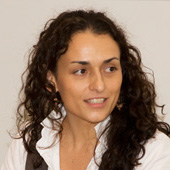About
Note: this event has had to be postponed to February 2012: the date is still to be confirmed.
The aim of this session is twofold: to provide students with the tools necessary to undertake research on online interactions, and to give an overview of the type of questions geographic and network data can answer. The network analysis component of the session will provide an introductory definition of online networks, and examine how they differ from offline social networks. The geographic analysis component of the session will introduce spatial data, examine methods to geocode existing datasets, and discuss ways in which such data need to be stored and analysed. Both components will then consider the theoretical and methodological issues associated to their analysis. At the end of the session, students should know which tools are available to capture, visualise, and analyse online networks and geographic data with the intent of answering a specific research question.
Topics to be Covered
Digital data give social scientists the opportunity to analyse social dynamics on a scale difficult to attain with traditional sources of data. In particular, they allow the relational nature of human behaviour and the interdependence it generates to be examined over time and space. The recent wave of protests in the Middle East/North Africa region and the Western world show how consequential online activity can be in spreading and diffusing calls for action; these events also provide data to empirically test theoretical models of collective action and social influence.
Mapping the geography of online social data allows us to ask questions about ‘where’ online activities are occurring. Networks, in turn, help us map and analyse a wide range of social dynamics and ask questions about ‘how’ and ‘why’ information and influence flows from some groups to others. The focus of this session will be on methods that can be employed to map the geographies of online data and reconstruct networks of interaction and information exchange.
Who Should Take This Course?
Students whose thesis research involves data about online interactions that can be analysed using network analysis or tools for spatial visualization, and those with an interest in visualising geographic and relational data. Participants should have a basic level of technical competency, but programming skills or prior experience with geographic or network mapping are not required for this introductory session.
Format
The half day workshop will give demonstrations of research, assess different methods and approaches, and engage with students about different ways of tackling issues in their research projects. The workshop will consist of both presentation and discussion sessions.
Readings
- Easley, D., and J. Kleinberg (2010) Networks, Crowds, and Markets: Reasoning About a Highly Connected World. New York, NY: Cambridge University Press.
- Goodchild, M. (2011) Modeling the Earth. In Rethinking Maps: New Frontiers in Cartographic Theory. London: Taylor and Francis.
- Hecht, Brent and Gergle, (2011) Beginner’s Guide to Geographic Virtual Communities Research. In Darren A in Daniel, Ben K. (Eds) Handbook of Research on Methods and Techniques for Studying Virtual Communities: Paradigms and Phenomena. Hershey, PA: IGI Global.

